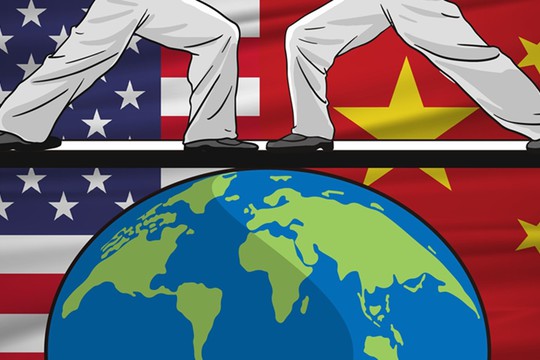Somebody in USA understands that things are going wrong. And offers his own interpretation of the situation. “Today the US and China are geopolitical rivals. Neither side wants rivalry to devolve into war, but both sides’ militaries have to plan for that possibility. That’s why China’s rise as a manufacturing powerhouse and America’s relative decline raise troubling questions,’ writes “The Asia Times”.
In the late 1940s, in that war’s aftermath, the US was producing more than half of the world’s steel. Today, China produces half of the world steel. America’s steel output is less than a tenth of China’s.
And it isn’t just steel; the US and China have traded places in the manufacture of many other critical products. Should, God forbid, the US and China ever become engaged in a lengthy war, China would replace depleted weapons supplies faster.
According to a retired Air Force general, war games show that in a war with China over Taiwan “we run out of munitions in the first week.”
Two of the troubling questions arising from the US-China industrial role reversal are ‘why it happened’ and ‘what to do about it’?
An admittedly oversimplified answer to the why question is that US post-World War II policies were based on economic logic rather than geopolitical logic. If we’d followed geopolitical logic, we’d have leaned over backward to protect our industrial base as a matter of national security even if it made our economy less efficient.
Economic logic offers lower prices and higher living standards through the free flow of goods and investment capital. In economic logic no country makes everything. Nations produce the goods and services they can make competitively, and they trade for the rest. Financial markets allocate capital to the most profitable producers.
For many decades after World War II, economic logic yielded the prescribed economic benefits without undermining national security. The US industrial base was strong enough to produce most of what was needed for national defense.
Two things have changed. In recent decades, economic logic took American companies beyond manufacturing overseas for overseas markets to manufacturing overseas for the American market. Worse, the “offshored” factories went heavily to China, a country that has gradually emerged as a geopolitical rival.
Uncle Sam is promoting reshoring, offering financial incentives to build things like semiconductors and electric cars in the US and imposing buy-American requirements.
So far, reshoring and friend-shoring are the main answers to the what-to-do-about-it question. But these are random efforts. There’s no strategy underlying them. We’re sleepwalking into industrial policy, complains “The Asia Times”.
read more in our Telegram-channel https://t.me/The_International_Affairs

 12:09 19.12.2022 •
12:09 19.12.2022 •























